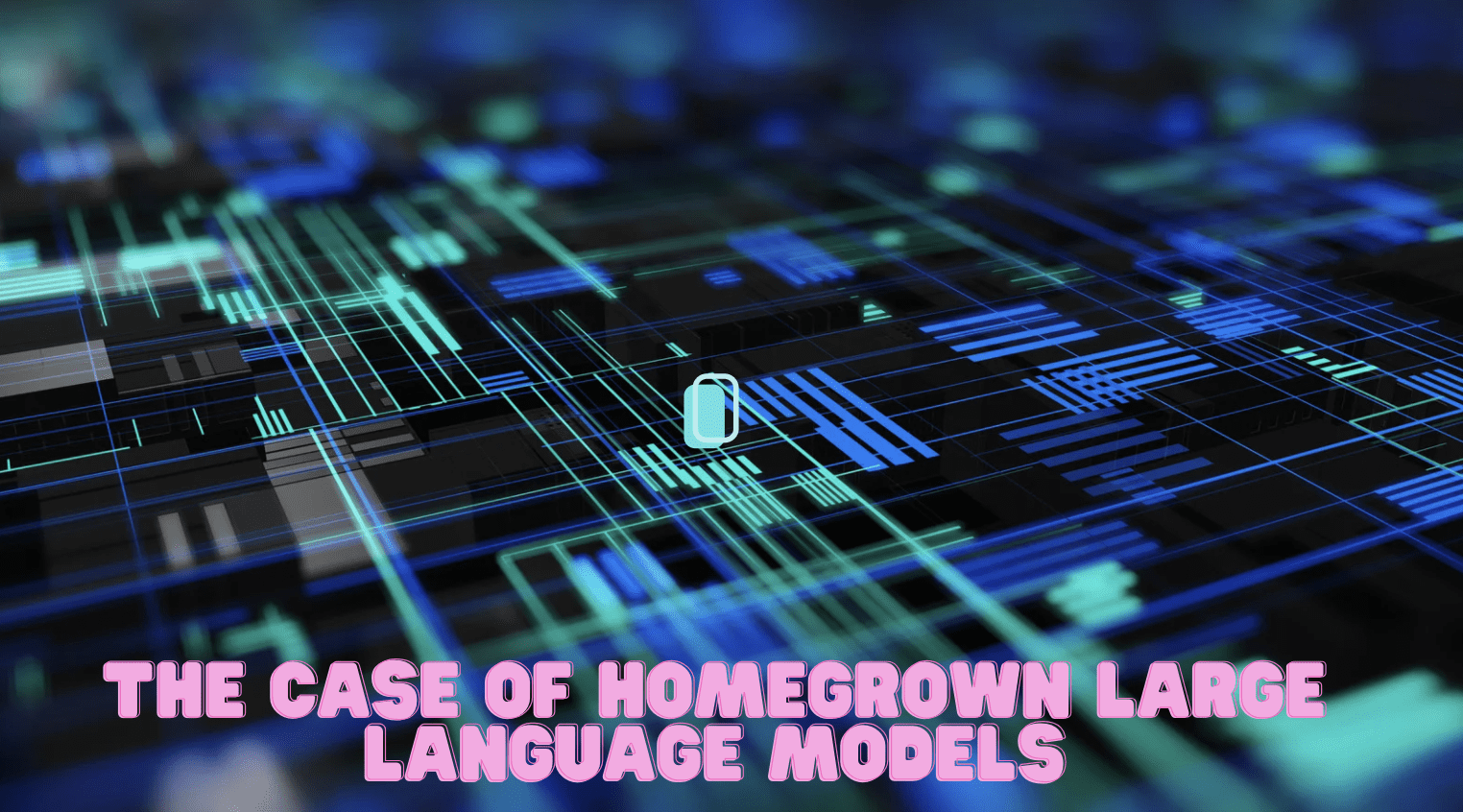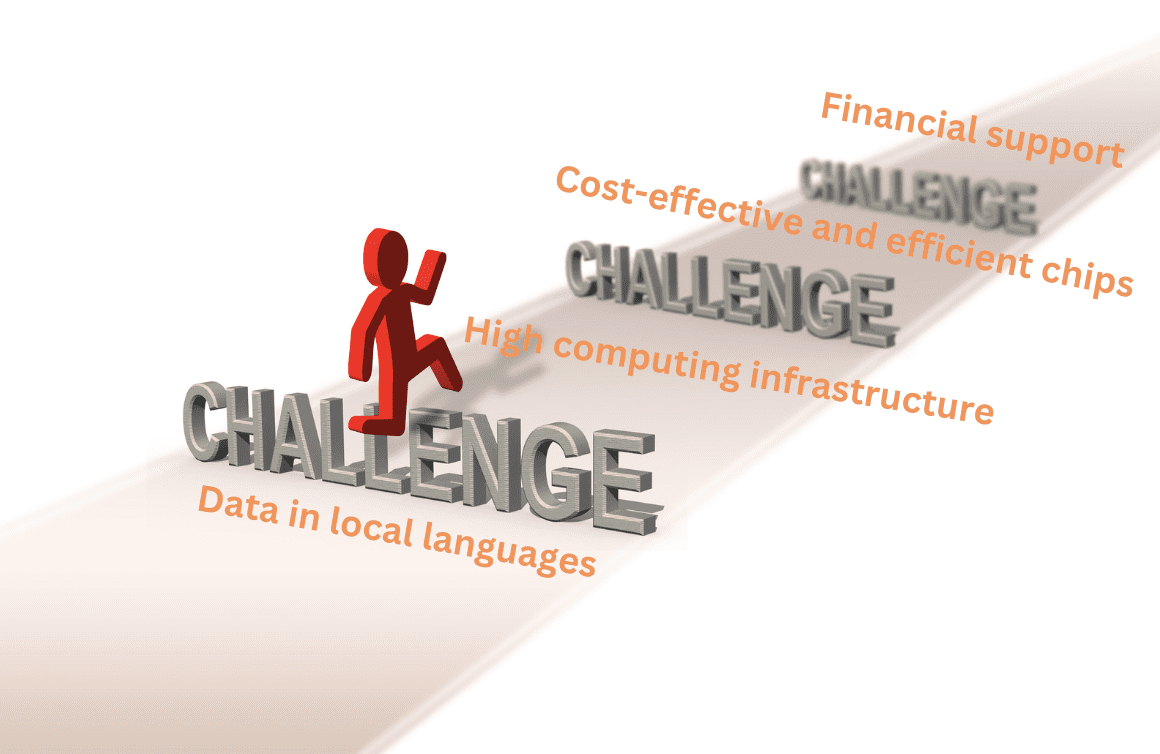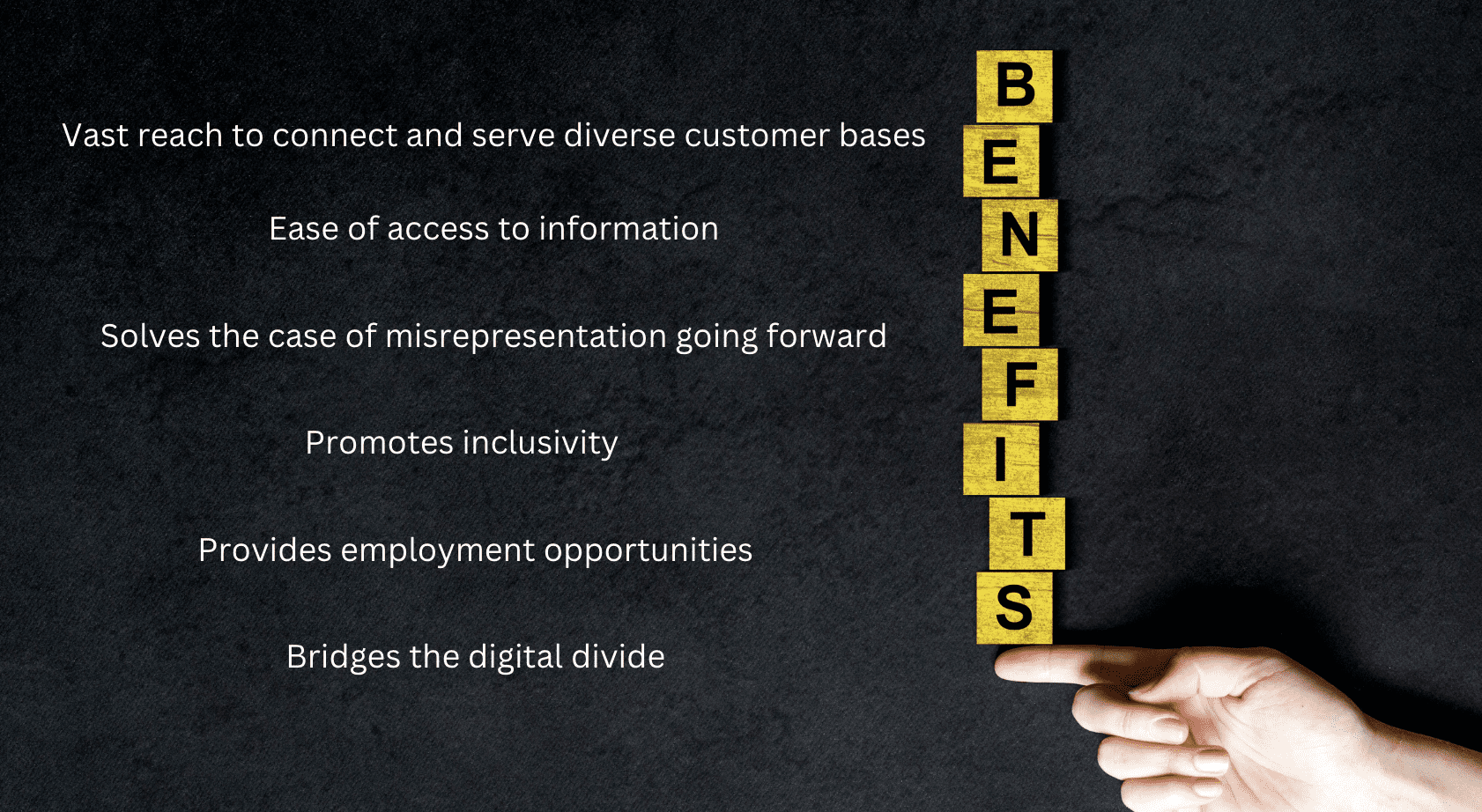Most notable LLMs are experts in widely spoken languages, such as English, but do not cover linguistic diversity that can effectively serve global cultural and regional nuances.

Image by author
The creation of local LLMs is an important technological step and deserves its merit. Mainly, it sets a precedent for everyone to be part of this digital transformation, which is a win-win: by enabling greater reach to customers and allowing companies to expand their reach, connect and serve diverse customer bases across the world. .
ai finds compelling use cases in many applications while managing cognitive overload, facilitating access to information, and improving customer experience.
LLMs trained in linguistic diversity cover all three fields, providing easy and timely access to information. This provision of knowledge at their fingertips can help many local communities get the much-needed help and support to resolve their queries.
While we have covered a lot of ground in favor of building such models, it is equally important to note that such model development requires access to data in local languages. Needless to say, it may seem like a challenge at first, but it is not unattainable.
In fact, it quickly becomes a boon for local communities in the form of data labeling (more on this in the next section), when data collection processes are built efficiently at scale.


Image by author
Furthermore, LLM development requires high-performance computing infrastructure such as GPU and cloud computing services, which is expensive and requires a sponsor/partner to provide financial support.
Inevitably, the success of any nation depends on building cheaper, more energy-efficient chips to build the next generation of ai models. It also needs increased R&D funding to facilitate a platform for brainpower to come together through broad collaboration between academia, industry and government.
Data is no longer the new oil, but knowing how to process such large data sets is increasing the need for energy-efficient chips.
In addition to software, developing models trained in local languages requires funding R&D in cutting-edge technology and developing self-sufficiency in hardware. Additionally, large models rely heavily on power-hungry data centers, increasing the need for energy-efficient chips.
It gives a sense of unity where we include everyone to be part of this technological advancement and in doing so they can also become part of that digital world, also known as data, so that the next wave of new models also includes them , resolving the misrepresentation case in the future.
LLMs trained in local languages would not only master the data but also play an important role in promoting diverse cultures.
While most believe that LLMs could negatively affect the workforce, there is also a positive side. It is a win-win because it provides employment opportunities to technology developers as well as all participants in the entire value chain of said technology.
Additionally, removing barriers that prevent non-English speakers from using technology can significantly improve their lives. It can open the door to opportunities, making them active participants in how the world is run today.
More jobs will be created. Creating diverse data may seem like a challenge to some at face value. Still, once done efficiently at scale, it can quickly become an opportunity to provide wage opportunities to taxpayers. Local communities can participate in these types of data generation initiatives and participate in this revolution at a foundation level, while also receiving recognition for playing their role in the form of salaries and royalties for their contribution.
Access to knowledge is the greatest advantage and digitalization has been a great equalizer. The ratio of “support from teachers, lawyers and doctors” to “population” is reported to be low in developing countries compared to developed countries, clearly highlighting the gap that can be efficiently closed by applications that Help customers solve problems in the early stages or receive guidance. to the next steps. This is feasible if the user is comfortable with the conversational language of ai-powered chatbots.


Image by author
Consider sectors like agriculture where LLMs can help farmers without any language barrier. Farmers can get guidance on best irrigation practices and how to improve water use efficiency.
Let's take another example from the healthcare sector. Understanding the complex specific terms of those insurance policies is a challenge for all of us. Opening a chatbot that can leverage its adaptive tutoring style to educate all communities in the language they understand is a great effort to achieve parity.
ai models that include various languages help close the digital divide and bring the opportunities that such technological advances bring to everyone. Most importantly, this inclusion puts much-needed attention on marginalized sectors and makes them key participants in this revolutionary change. It takes into account ethical considerations by providing fair access also to local groups.
Vidhi Chugh is an ai strategist and digital transformation leader working at the intersection of product, science, and engineering to build scalable machine learning systems. She is an award-winning innovation leader, author and international speaker. Her mission is to democratize machine learning and break down the jargon so everyone can be a part of this transformation.





